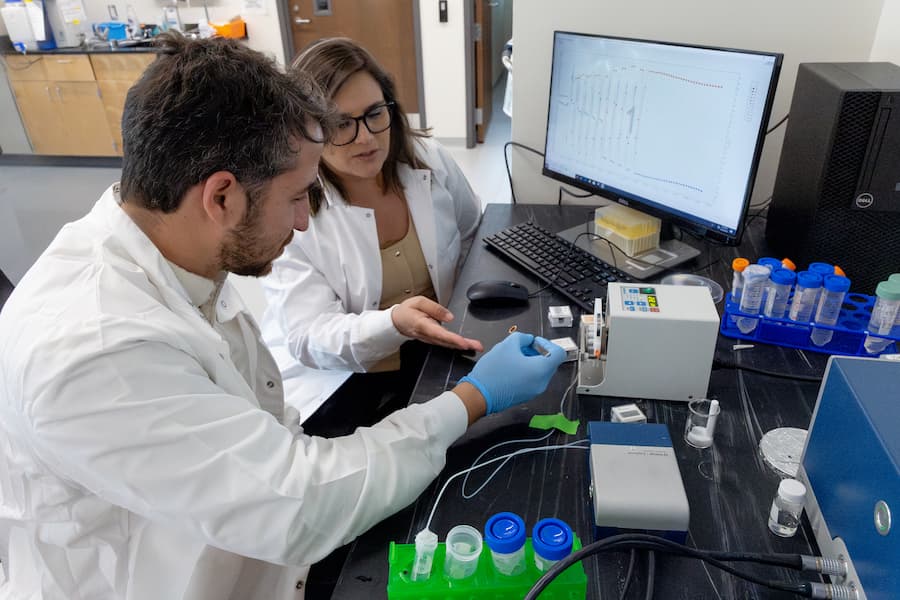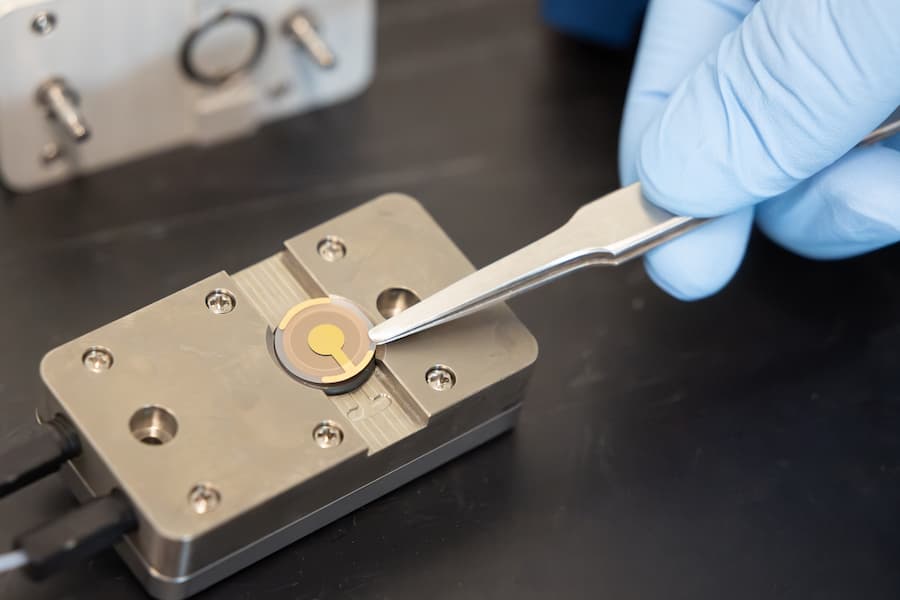Posted on October 22, 2025 by Sean M. Wood

Southwest Research Institute and The University of Texas at San Antonio are funding the development of a smart biosensor coating to enable continuous monitoring and characterization of cells during the production of immunotherapies. Co-investigators Carlos M. Cantu, an SwRI research engineer, and Dr. Gabriela Romero Uribe, an associate professor in UT San Antonio’s Klesse College of Engineering and Integrated Design, plan to use smart sensors to automate processes to reduce human errors and costs associated with CAR T-cell production. Photo credit: Courtesy of SwRI
Doctors have been practicing immunotherapy to treat cancer for more than 130 years, injecting bacteria to kill cancer cells. The discovery of T-cells and cytokines have resulted in immunotherapy becoming a powerful cancer treatment tool.
Dr. Gabriela Romero, the Klesse Endowed Professor in the Department of Biomedical Engineering and Chemical Engineering, is working with research engineers from Southwest Research Institute (SwRI) on the next advancement. They are developing a smart biosensor coating that would streamline immunotherapy production for cancer treatments. It would reduce the cost of treatment dramatically and accelerate the production process.
With current technology, doctors reprogram T-cells—a specific type of white blood cell—to attack cancer cells. They become chimeric antigen receptor T-cells (CAR T-cells) and target a specific patient’s cancer with their own white blood cells. The cost can run from hundreds of thousands of dollars into millions due to the need for specialized equipment and trained personnel.
“Modifying the patient's own cells to treat cancer is very slow and it's expensive,” Romero said. “What we are doing is trying to replace this part of the therapy that is expensive and slow by developing a smart biosensor that can recognize the cells in a manner that is faster and reversible, meaning that we can use the sensor and reuse it as many times as we want."

Romero and her team at UT San Antonio originally developed a sensor to deliver drugs to the brain. Her collaborators at SwRI saw her work, she said, and asked if it could be adapted for sensing in the cancer treatment.
“This is a great example of interdisciplinary collaborations,” Romero said. “To diversify the applications of the things that you create.”
The work is funded with a $125,000 grant from the Connect program which is sponsored by the Office of Research at UT San Antonio.
"I believe that CAR-T and cell therapies are the future,” she said. “They have great potential, but they are expensive and have limitations on accuracy. What we are doing is creating a biosensor to solve those problems."

